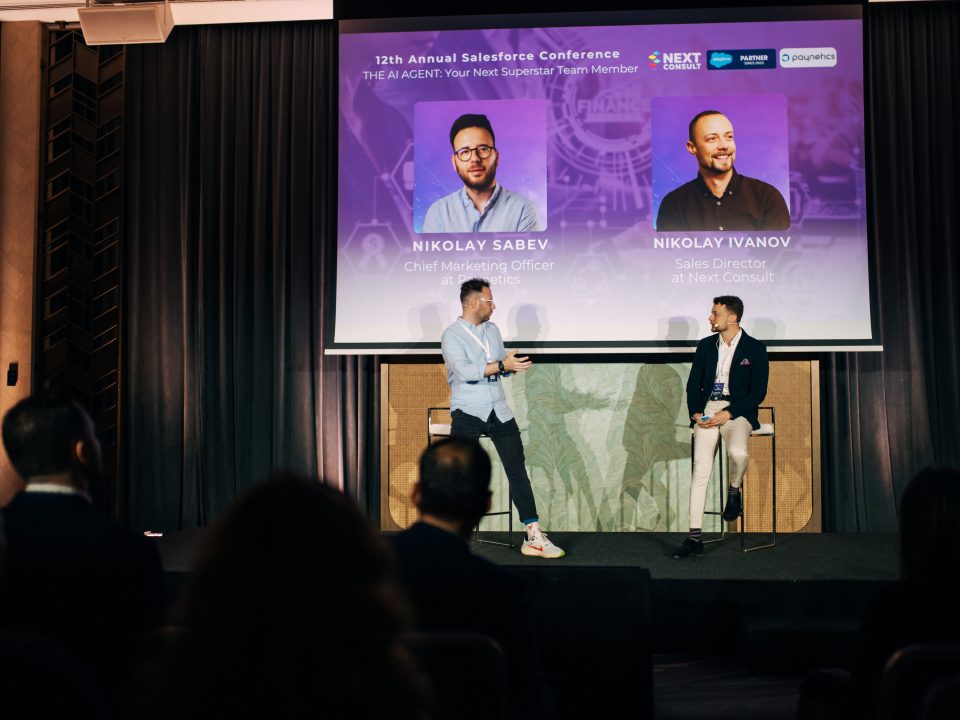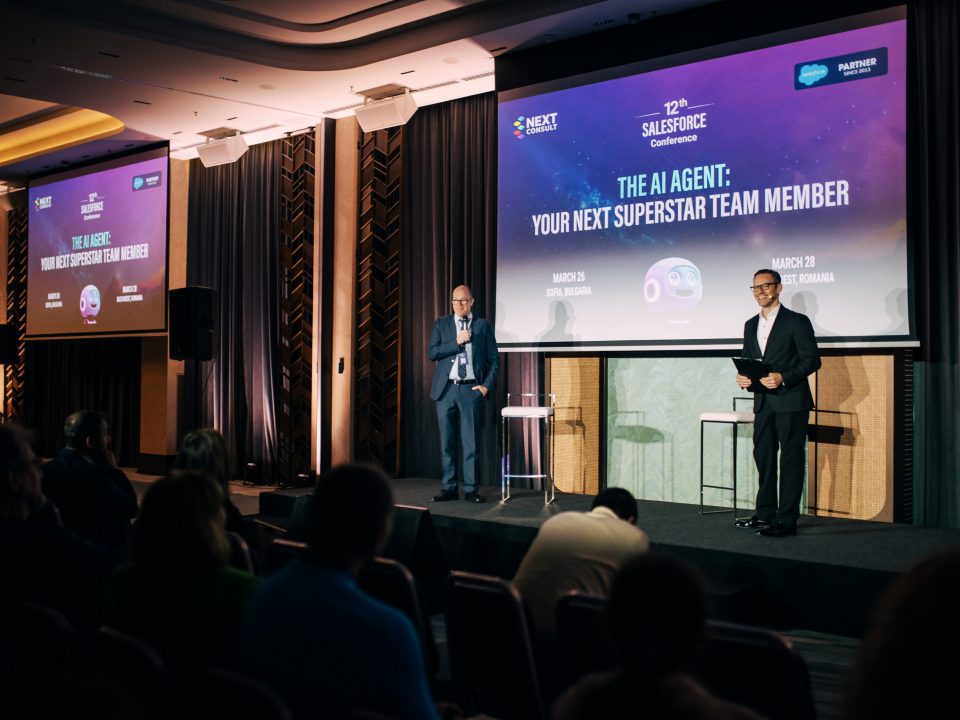The LEAN transformation of a company includes a series of improvements, based on the 20 Keys® methodology specifically related to the quality, sales, deliveries, safety at work and moral (the so-called QCDMS).
“The essence of the “lean” thinking – says Toshko Petkov, Partner in Business Consulting in Next Consult – is to focus on what our clients appreciate as added value and reduce or eradicate everything else so that they can be faster, offer a better quality and deliver with a lower cost than their competitors.”
Mr. Petkov in what direction do you think Eastern European companies have developed in recent years and is there a need for LEAN? How close or how far are they from the LEAN thinking according to your observations?
- It is difficult to categorize all companies at once. Among them there are those who are LEAN, but the majority were created by businessmen who usually do not have a flair for Lean business and its development. Generally they don’t have a specialized experience and knowledge regarding LEAN. It is precisely because of this that most of the Eastern European companies aren’t “lean”.
They produce and create products with a great deal of hidden losses. What’s more the higher level of problems is related to the quality or bigger costs spent in order to insure a better quality. For instance, take a big international company that has a quantity of production units across the globe. This type of company comes to Bulgaria, for example, with a set business model and a project for what it will be producing, for the production stream, etc. They practically arrive with a factory that is ready, has a clear direction, an optimized production.
When entering the local market, these types of companies become a role model for “lean”. This is due to the long road they have walked to learn to be “lean”. They have made a great deal of mistakes but have had the time to correct them in order to reach an optimal level of management, business model and production. Essentially, by owning the “know how” for them it is easier to recreate the processes elsewhere. The difficulties come in one purely Bulgarian company, for example, that has started from zero, when it has designed a building envisaging a certain production however the requirements change following the business environment.
In a moment like this the Bulgarian company finds itself in the lack of systematized experience. Why? Because through the 20 Keys methodology and our experience we can help them become “lean” in a shorter period of time. Precisely here stands the great value of our services. We can shorten the time for taking lessons when it comes to costs, effort and time.
Can we expect a Eastern European company to create a business similar to the company TOYOTA, famous with the implementation of LEAN, in the near future?
- Definitely yes. I believe that in Eastern Europe there are a lot of examples of companies that have done it especially when management that has succeeded in achieving a good degree of employee motivation, including the implementation of the “lean” concept.How can LEAN help the expansion of the market of the companies per example abroad?- Primarily companies or their managers have to realize how substantial some base elements are for the growth of their business such as for example quality. The higher the quality, in particular of the completion of the product, processes and services in a company, the higher the trust that is built in the clients.
It is vital from the point of view of the security of the supply process for the client. Not seldom the big international companies (who are often times clients of Bulgarian clients) hold an enormous market in their hands and cannot afford to risk their quality and deliveries. For the purpose they create special programs for development of their suppliers who are directly linked to the implementation of “lean” practices. According to these programs every supplier company has to meet certain conditions in order to take its place in the “lean” hierarchy.
These conditions relate to how the company can insure security and efficiency of the supply process. This means being able to deliver quickly, to deliver a quality product at a low cost price, doing all this on time and meanwhile being reliable in the long run.This is why the more “lean” a company gets, the closer it is to expanding its business.
What is your advice to the companies that are yet to start their LEAN transformation?
- My first advice for them would be to engage each and every one of their employees in the so-called lean journey and secondly to create their own knowledge, practices and processes by means of which they will realize their “lean transformation”. With “lean” the path to constant improvement is never ending. In order for a company to develop and improve, it has to have previously built its own capacity to do it with. This is our approach for implementation of “lean” with the program “20 keys”.
By accomplishing such programs, our mission is not to put a company in order, but to train and share with it the “know-how”, so that it can create its own capacity with which to become “lean”. We are helpers that offer the necessary “know-how” and shorten the path, expenses and time needed to achieve the ultimate goal – making our client a world renowned “lean” company.
In what way is LEAN tied to the concept of preservation of the environment in the context of the social responsibility of a contemporary company?
- There is a direct link between “lean” and the preservation of the environment. “Lean” says that we have to produce what the client values and get rid of the unnecessary. This means working with optimal consumption of materials and energy. “Lean” teaches us to be economic, how to create maximal effect for the client with minimal effort, material and energy. This is key №19 “Conserving energy and materials” in our methodology.
How does LEAN fit in the nowadays popular subject of innovation and specifically the “artificial intelligence”, bearing in mind that the human factor is in the center of the methodology?
- Regarding the innovations, key №20 “Leading technology” is set to introduce practices, following the development of modern technology, to create preconditions for the companies to profit to the maximum of, as well as for them to become carriers of innovation in their own field.“Lean” does not deny robotics and “artificial intelligence”. We know that the “lean” methodology was born in the automobile production of Toyota where there is a great number of robots and a high level of automation. The “lean” concept says that all that is new, be it robots (“artificial intelligence”), leads to production with less resources and higher quality.
Meanwhile, when a production reaches higher quality, it creates a more durable process for supplying, which leads to an expansion of the market and to the increase of sales. Practically, if a company applies “lean”, it preserves its personnel because the free human resource because the newly installed improvements in the efficiency of production, including the introduction of automations, robots, artificial intelligence, will soon face the same problemс as previously due to the next growth in sales. This is why the human resource does not become redundant despite the improvements (new technology). It is just the company becoming more developed and selling more. It is more probable for a “lean” company to increase personnel rather than to reduce it.Another proof for the significance of the human factor is the link between “lean” and “Maslow’s pyramid” in which at the top stands the most motivating element – self improvement of every employee so that the company can improve as well and create new innovations.
Taiichi Ohno says that in spite of a company with “stars” (a couple of the best innovators, the most intelligent and the most flattered), he prefers to have employees that leave work every day content from what they’ve done because if today they’ve made an improvement (be it small), that will aid the company to produce faster, for less costs and with better quality tomorrow.
What results can be achieved with the implementation of “lean” practices?
- I can give as an example Rollplast who are our clients for the 20 keys ® program. Rollplast is a Bulgaria company that in 15 years has managed to become a leader in the production of doors, windows and facades in Bulgaria and the entire Southeast Europe. As a result of the implementation of “lean” and in particular of the 20 keys methodology, the company has shared with us that they have reduced the fluctuation of their personnel by 2 times. More about Rollplast’s LEAN transformation you can find here. Kamax, who are another client of ours, report an increase in turnover and profit. Read more about them here.
All over the world the 20 Keys methodology is implemented in more than 700 companies. Frequently results are achieved and as a result production is doubled, unfinished production and inventories are cut in half, complaints and problems in quality are decreasing by 90%.
_________________________________________________________________________________________________________________________________
Would you like to receive news and updates from us? No spam, no hassle. Please sign up for our newsletter here.






